IN what seems as rapid a time as it took Battaash to cover five furlongs at Goodwood, Fran Berry has become one of the authoritative voices in Irish racing.
Be it form, analysis or opinion, Berry has managed to straddle the balance between fair and forthright. He doesn’t plunge the knife in for the sake of faux drama or self-promotion but is measured without compromising on honesty and insight for the viewer.
As someone who was a jockey until 16 months ago, it is understandable that he doesn’t go for lacerating former colleagues, though in truth, it is hard to take that style of punditry seriously anyway. Far more noteworthy are those that can make the same observations without resorting to histrionics and an extreme vocabulary.
Berry is measured but has no problem remarking on the merits or otherwise of a ride. We know from the plethora of ex-pros given a microphone that such commentary is rare. Thankfully, the 39-year-old Kildare native is on the Ruby Walsh/Johnny Murtagh side of the spectrum.
A colour man must provide insight. Most of the keenest and most knowledgeable of racing’s followers have not ridden at speed in a group of horses on undulating tracks around world. Nuance beyond a short-head winner being the beneficiary of a great ride due to being kicked on early or timing the late run perfectly, and the short-head loser the subject of a poor one for hitting the front too soon or making the challenge when the bird had flown is what we yearn for.
Neck injury
You get none of that rubbish from Berry. He takes his job very seriously, having been forced into it by a serious neck injury that he still requires constant physio and a strength and conditioning regimen.
“It was the first night of the Friday Club and Martin Dwyer asked me would I go on because they needed someone with an Irish connection for Dundalk,” Berry recalls of the chain of events that brought him a new means of earning a living.
“Afterwards, Michael Shinners of Sky Bet said, ‘the Racing TV lads said if you ever want to make a career change to give them a shout.’ Three months later I got the fall and a month later, we were making the introductions.
“April 1st last year I announced my retirement. That was a Monday and I was in the studio on the Thursday. There was no real let up, I just went from one to the other. Obviously, I had a couple of months from the fall in January to try and get my head around what I was going to do. But it has gone by quick.”

The return of racing post-lockdown demanded skeleton crews and thrust him into anchor duties. This was completely out of his comfort zone but he has risen to challenge. He was always averse to settling down in Easy Street, for fear of getting stuck in the block called Rutsville. That was why he moved to England and was such a success in Asia.
“I rode my 1,000th winner in July of 2015. I’d had it in my head that I couldn’t do much more than what I’d done (in Ireland) so once I’d done that, I started looking abroad. I was always keen to give England a go but I didn’t want to go without a base. A mutual friend said that Ralph (Beckett) was looking for a jockey so that’s how that happened.
“If England didn’t work I was going to go to Asia for a stint. My last year was going to be the decision year of whether I’d stay or not anyway. I just wanted to push myself, take myself outside the box, cold-calling lads. Personality-wise I think it helped me a lot. And going over there got me into the media.”

Kinema and Fran Berry winning the Duke of Edinburgh Stakes at Royal Ascot \ carolinenorris.ie
Legwork
Racing TV and Sporting Life are where you’ll find him now. The legwork required to do the television work properly took him by surprise but he threw himself into it.
“I didn’t want to be caught out, looking short of prep or being an ex-pro just winging it.”
The result is a steady stream of deep-dive information, regularly informing observers that certain horses are overpriced due to a run that on the surface might have looked disappointing but because of his knowledge of the individual, pedigree, draw bias, track topography, tactics utilised, headgear or ill fortune, could be ignored or marked up. Tipping a winner, particularly at a price, provides him with a thrill. It’s not the same as winning a Group 1 but any day you get a buzz going to work is a good one.
He has no qualms about commenting on jockeys’ performances.
“No because I think I am pretty fair. If I am saying something it merits saying rather than just saying it for the sake of saying it. It is valid criticism, constructive criticism. Once or twice lads say, ‘you were hard on me there.’ (I’ll reply), ‘But was I?’ They are half-joking.
“You have to get over that hump. I have my hat on now getting paid to analyse racing and call it as it is. Christy Roche would be a good friend of mine. He called me and said, ‘you just have to call it as it is. It is there to be seen anyway’.
“I do think a lot of the times there is a jockey’s decision, and a horse involved. You can balance one against the other. If the jockey made a mistake you can call it as it is. But there are reasons why they might have got to a certain point in a race where things went wrong three furlongs before that, be it being held up or the draw or whatever. Bar the winner, usually a lot of things don’t go right in a race for any jockey. It’s down to you to spot that.
“But even pre-race, if a horse is in a certain draw and a certain track, alluding to how hard it is going to be to win because they are in position x, or there might be a hold-up horse and the pace mightn’t be there. That kind of an insight you can bring to it.

Ruby Walsh, Gary O'Brien and Fran Berry on track (Photo Healy Racing)
Puzzle
“Every race is a puzzle. Every race is its own living, breathing entity. You aren’t going to blindly defend or slate anybody. It’s how things develop. I don’t think people take it too personally as long as it’s valid and balanced. I think I am fair but I am more than willing to do it if needs be.”
He picks out an example of what he views as fair and unfair criticism.
“Myself and Kevin O’Ryan had a disagreement in Leopardstown recently over Gavin Ryan when he was riding a good two-year-old for Donnacha (O’Brien) and Shane Foley kicked. I was just making the point that giving a Jessica Harrington-trained horse three lengths at the elbow into the short straight at Leopardstown off a slow pace, you leave yourself open to getting beaten.
“Ronan Whelan flew home to be third on Dawn Patrol in the Derby. He was getting a lot of stick for that. I wasn’t there that day but I could see what he was doing. He followed Santiago through and he committed to going into a gap that was there when he committed to it, but by the time he got there two horses tired in front of him and rolled in. But he committed with the best intentions and it was the right thing to do at the time.”
His earlier point on the actions and reactions of two separate entities, horse and jockey, is important given the debate surrounding the interference rules and their level of implementation.
A couple of hours after our conversation, Seamie Heffernan weighed in having been hit with a four-day suspension after guiding Jungle Jungle to victory at Gowran Park. Heffernan laid the blame for the prevailing discussion at the door of media personnel with no race-riding experience. It was a pointed reference to Kevin Blake and apart from missing the point of media as far more than one-eyed cheerleaders, neglected the emphatic support of Blake’s argument for stronger deterrents in quite strong terms by Heffernan’s own boss, Aidan O’Brien.
O’Brien, and many others who know a thing or two about the challenges of navigating half a ton of horse flesh around a track, believe it is a legitimate topic. Berry is another.
Heffernan argued that his manoeuvre was commendable because he was trying to win. Professionals will always attempt to push the line, as the jockey acknowledged himself, but if they are not held accountable, the line itself would move in the wrong direction.
Ever before the garlanded veteran spoke on Racing TV, Berry offered a solution that would clearly impact on jockeys’ decision-making, without having to be draconian with bans that would threaten their livelihoods.
“I definitely think it is a valid debate to have, from riding in England and Ireland and Asia. The happiest time in my career was riding in Japan and Asia. I have lost a race over there, I got a three-week ban for two bumps near the line. But interference generally doesn’t happen because the penalties are clear.

Fran Berry interviewing winning rider at Leopardstown.
Disqualification
“Maybe, more so in England than Ireland, but the threat of disqualification has to be there more than it is. There is a mentality, get to the line with your head in front and you will more than likely keep the race. France and Japan have followed our track but they haven’t to the same extent as people say. Ireland probably isn’t as consistent in the sense that you don’t know where you stand.
“The tracks in Ireland are particularly not suited to flat racing. They are unconventional and they are undulating and sharp, particularly the summer tracks. That does lead to tight riding because you can’t be wide. The flip side of that is in close finishes, lads won’t drift as much.
“If there was a chance you would lose a race, jockeys would be more inclined to put down the whip and straighten the horse if there were any problems. I do think the threat of disqualification should be greater than what it is. Suspensions are tough on lads. A six-day suspension in Ireland is quite a long time. It is not just the six days that you are losing. It is the knock-on effect of missing rides. It is all very well saying, ‘Give three weeks, a month’, which is needed on occasions, but it is not the be-all.
Bigger bans
“Bigger bans will lead to less interference but I do think, come a day, a guy might take a ban. But if you know you will lose a big race you will be very mindful of it. That is where you have got to go.
“You have very good stewards in Ireland and England. There is a debate about professional stewards. I don’t know if the budgets are there but I do think the more continuous training of jockeys would help.
“You get your licence and there is very rarely a seminar to say what is expected of you. If I go to Japan or Singapore or anywhere to get a licence, they have you in a room for two hours going through videos and showing you what they expect of the local riding rules in terms of interference. Then there are no excuses.”
It is an aspiration of the Jockey Pathway to have some sort of continuous assessment and refresher courses, and senior medical officer Jennifer Pugh has spoken of her ambition to establish a mentoring system for jockeys.
Go-to counsellor
Having learned himself, not least from his father Frank, a 10-time National Hunt champion and a Cheltenham Gold Cup-winning jockey, but also from observing the likes of senior riders such as Michael Kinane, Murtagh, Kieren Fallon, Kevin Manning, Pat Smullen and the aforementioned Heffernan – he attributes his sharp dress sense to seeing how Kinane and Manning were and are always immaculately presented going racing – Berry has become a go-to counsellor for a number of jockeys in Ireland and England. It is an area he would like to pursue further.
“It’s nice that they respect you but it’s a bit of a responsibility in its own way. You’ve got to give constructive criticism. It’s tough on lads. I’m very happy to do it. It mightn’t happen this winter but I’m thinking of doing a mentoring course.”
***
BERRY isn’t the first to be thankful that he is not setting out as a young jockey in the current climate. He tells of how in his final year in Ireland, he tended to travel with Declan McDonogh, Manning and Smullen and after every meeting, they would type each other’s names into Twitter and rib one another about the unfolding carnage.
Being established and seasoned, they could handle whatever the faceless would throw at them. It isn’t that straightforward when fighting for survival in shark-infested waters, and that is in addition to the many other stresses, some of them profession-specific such as making weight.
Lewis King had a paper from his IHRB-supported PhD research exploring the prevalence of mental disorders and risk factors among Irish jockeys published in a medical journal during the week. It revealed some very stark figures.
Almost four out of every five jockeys met the criteria for at least one common mental disorder. Adverse alcohol use (61%) and depression (35%) were the most prevalent. More than a quarter of the jockeys surveyed were considering retirement. Berry is not surprised.
Lonely job
“It is a tough, lonely job at times. That is when things are going well. If things are going poorly it is getting harder. If you are not associated with some of the bigger yards, you are doing the rounds riding work for no money and trying to get rides. It is a vicious circle if there is no momentum behind you. You can see how lads get low.
“Financially it doesn’t add up at the end of the line if you are not at a certain level. They have a good system in England with JETS (Jockeys Education & Training Scheme). When I got injured, I could go and see what options were there.
“Perhaps (we should be) starting with the younger riders, working your way into the mentality of looking into future options would be a good way to go. But I do think if a guy gets injured there should be somebody ringing him up a week later. Get something, along with the rehab; something to do whether it’s a computer course, something that you are not just left idle seven days a week.”
HRI’s CARE (Careers And Racing Education) department provides such services and Bryan Cooper and Emmet McNamara are just two active jockeys who have availed of them.
“It just adds another string to your bow and gets your head out of sitting at home, wondering, ‘what if?’ It occupies you as much as anything. Depression has become very prevalent. It is a big thing when you stop riding. I was very lucky I have a family and a good support network but it is a very daunting thing when you know your riding days are over.
“You have a loss to your routine, your livelihood, your identity. That support network, unknown to yourself, that you had going into a weigh room, going in a car with lads.
“That daily interaction is gone, and in an instant. You can see how lads drift away or slide into low points. There are good racing charities. I am on the board of the Irish Injured Jockeys. There are good intentions there but it is just formulating a plan of attack.
Constant pressure
“You can see it with trainers as well, the pressures of that. That is the toughest job in the world. Dealing with staff, owners, not being paid. It is a constant pressure. When you get them away from it, you realise they are going around even more tightly wound than jockeys.”
He won’t ever sit on a horse again but made peace with closing that door, thanks to the knowledgeable and understanding people around him, and the enthusiasm he has for his new roles.
Listening to him speak, it would come as no surprise if there were new and more influential roles for him, in years to come.
Racing would be the better for it.

“SHANE Foley stands out. He’s flying. He’s obviously got Jessie (Harrington) but he’s very good tactically. When you talk about a race, he knows x, y and z about a horse. Charlie Swan was the same – brains over brawn. Shane has that kind of thing though he’s very strong in a finish. Wayne Lordan is very good too.
“At the other end of the experience scale, Gavin Ryan’s on a golden run, Andy Slattery is gone a bit quiet ‘cos he hasn’t hit the ground running with a 3lb claim this year, Joey Sheridan is going to do well, he’s with a good stable and Donagh O’Connor is a very good rider. Ben Coen is another.”
“IT gets to a stage where you try and work through it or you look to going abroad. Unfortunately, there’s a limit to the number of opportunities in Ireland for lads to do well. Some lads don’t. Richard Hughes couldn’t make it here. Jamie Spencer went to England. There is no shame in it and there’s great opportunity. Richard Hughes and Jamie Spencer both went on to be champion jockeys.”
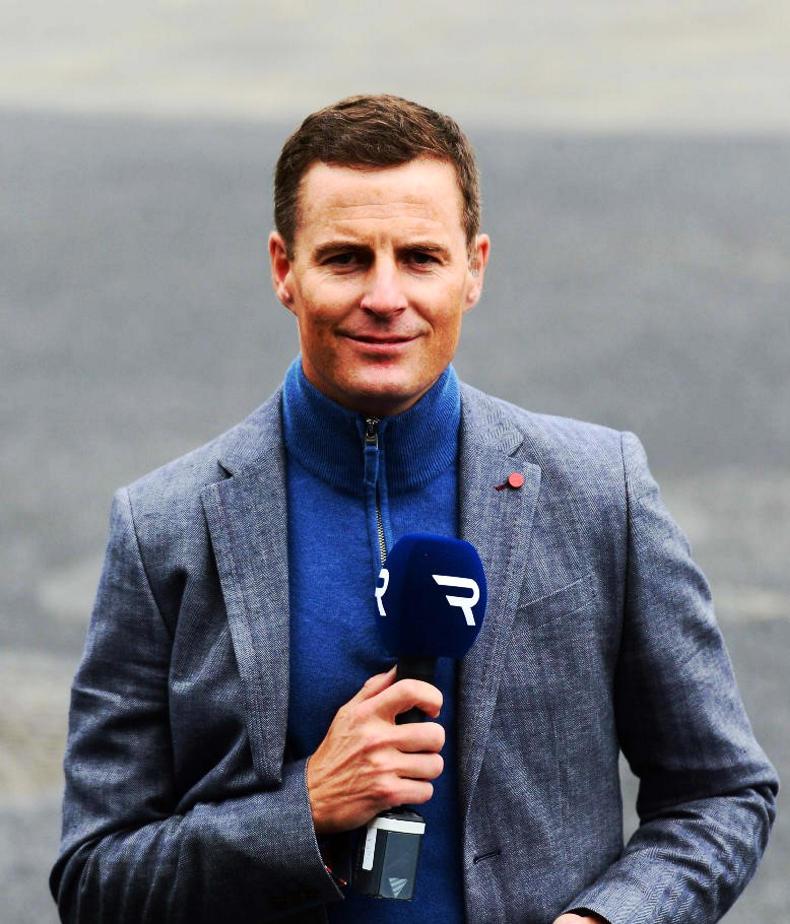

 This is a subscriber-only article
This is a subscriber-only article
 It looks like you're browsing in private mode
It looks like you're browsing in private mode




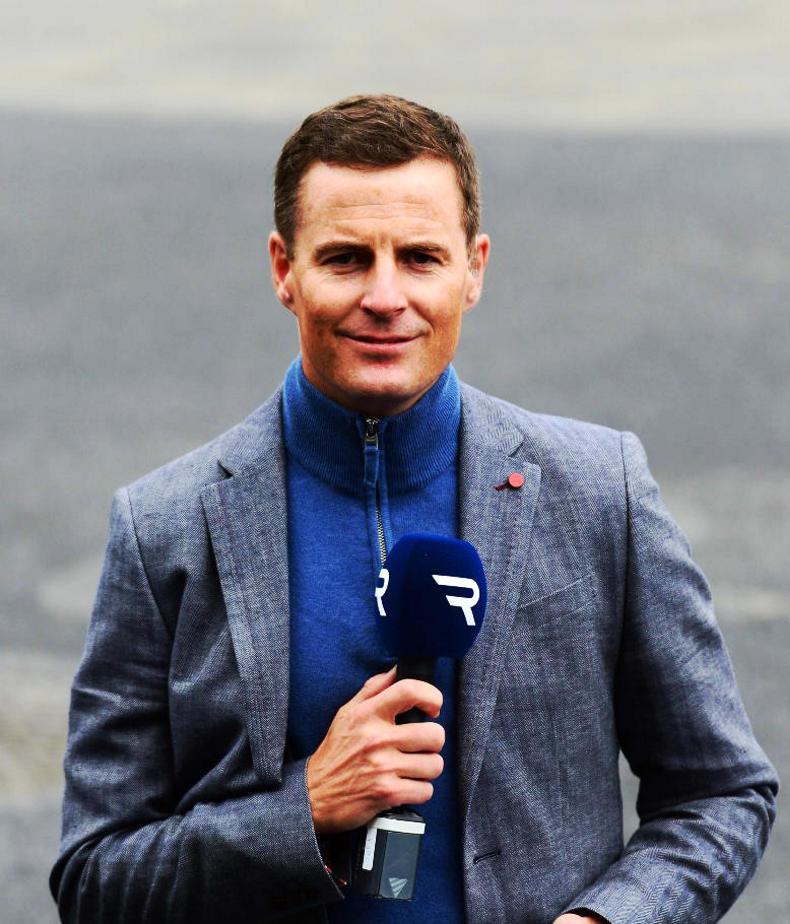
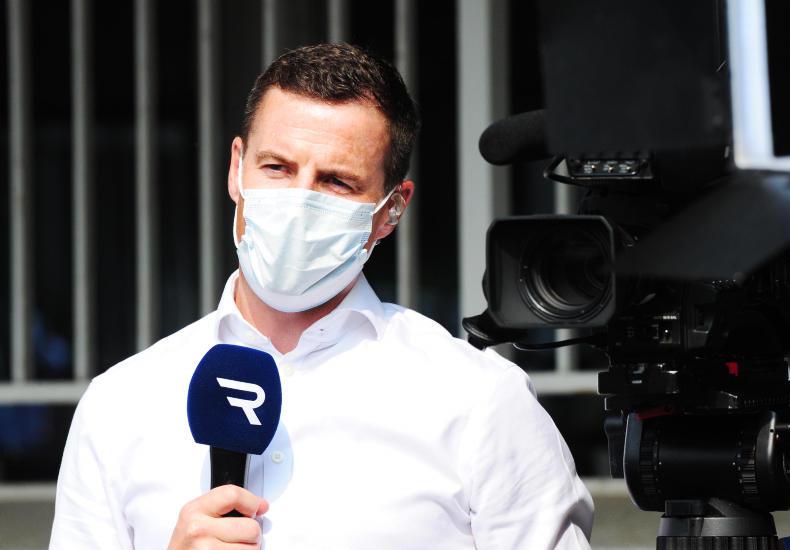
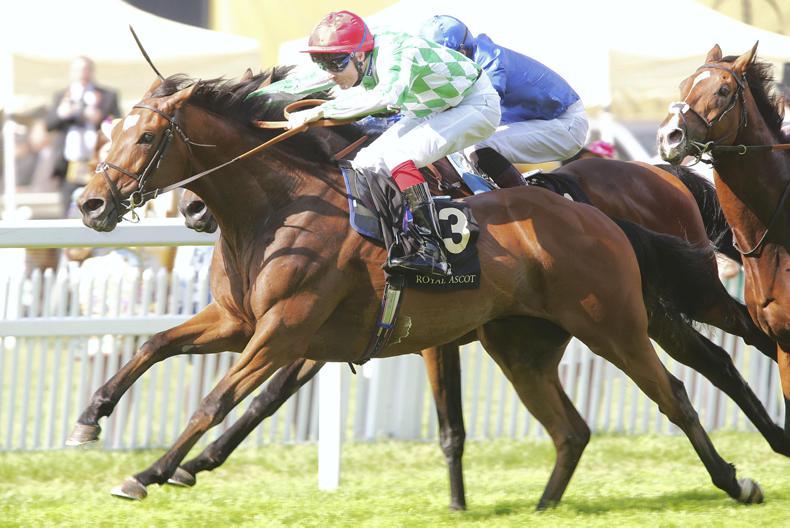
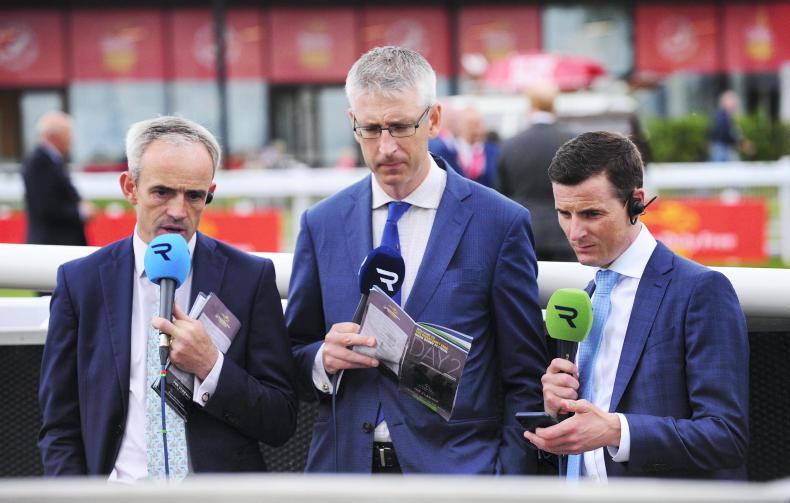
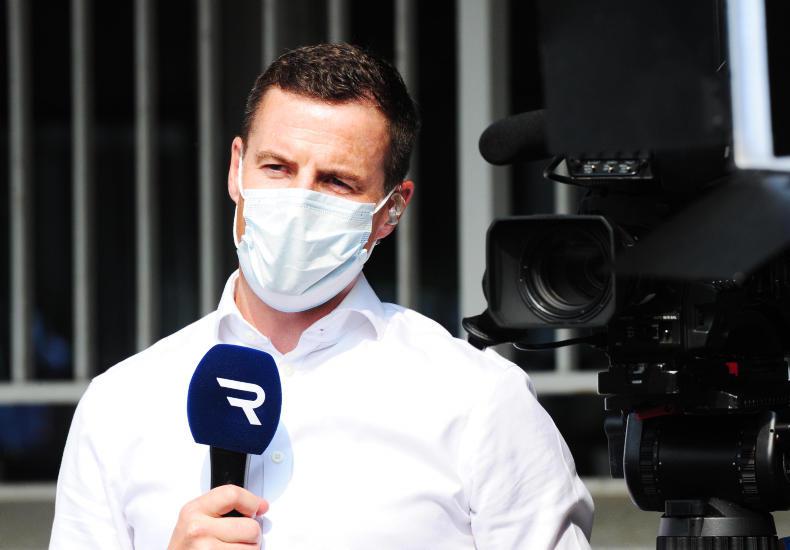
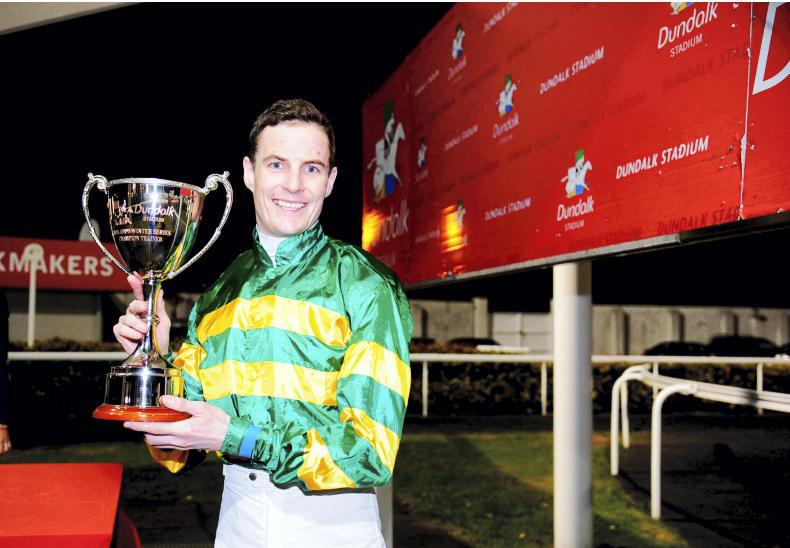
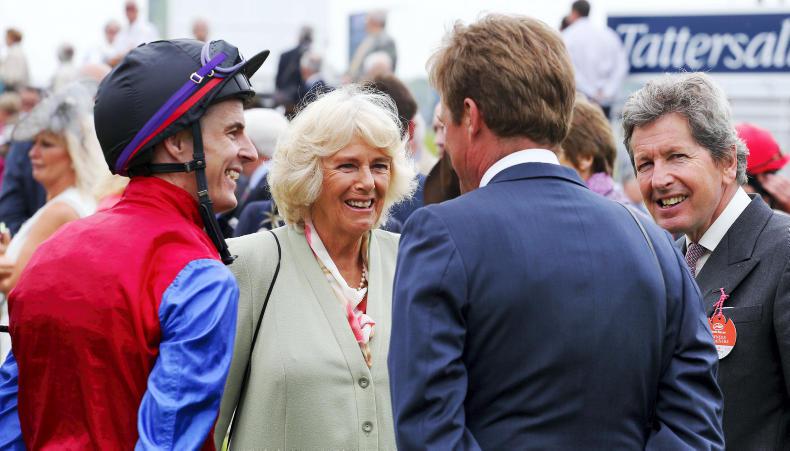

SHARING OPTIONS: